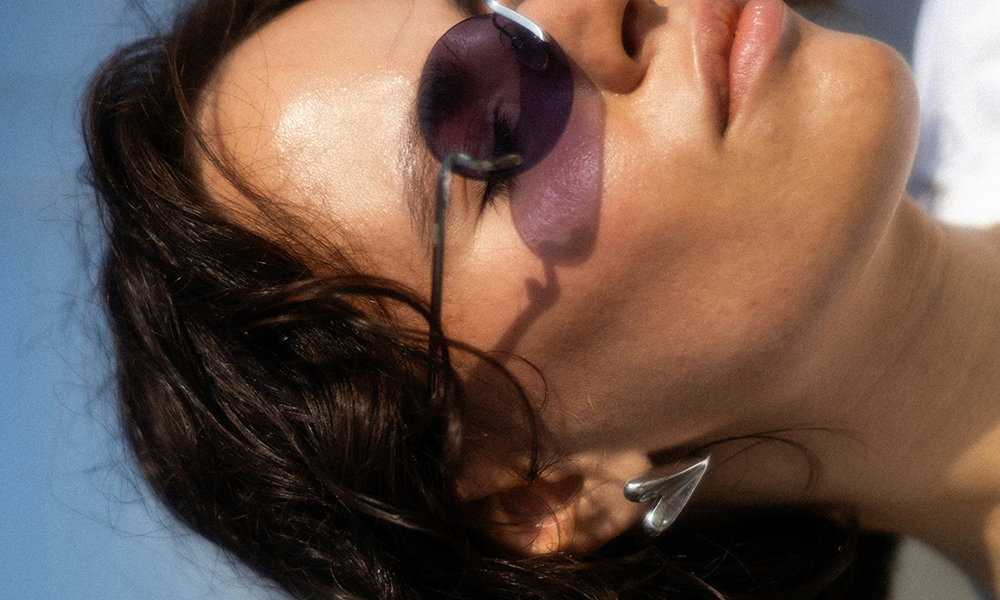When melasma flares up in the summer, it can feel like no amount of sunscreen or skin care makes a difference. But according to New York dermatologist and Skincare Junkie founder Blair Murphy-Rose, MD there are specific things you can do to keep dark patches from getting worse when the heat is on.
In this episode of The Beauty Authority, Dr. Murphy-Rose breaks down the real triggers behind melasma and the most effective ways to manage it when the sun and heat are causing flare-ups.
1. Heat alone can make it worse
“It’s not just UV-induced, although that’s a huge major player,” says Dr. Murphy-Rose. “It can be heat-induced, too. That, of course, is very difficult to avoid, particularly if you live in some of these warmer climates and certainly seasonally.” Even everyday heat from cooking or long hot showers can trigger heat-driven inflammation, especially in people already prone to pigmentation.
2. The type of sunscreen you use matters
“Sunscreen, sun protection, all the different measures will be your best friend,” says Dr. Murphy-Rose. But when it comes to melasma, mineral sunscreens are the clear winners. “The very best ones will be a mineral sunscreen, so containing things like zinc oxide or titanium dioxide. Those are the two mineral active ingredients in sunscreen available in the United States.” She adds that how you apply it also matters. “We talk about two finger lengths for the full face, a little bit more to bring it down onto the neck, which is so often neglected.”
3. It’s an inflammatory condition
“It’s inflammation-driven,” Dr. Murphy-Rose explains. “We know that any form of inflammation in those who have a propensity to develop melasma, which is so many, you have more likely to activate the process.” That means even friction, heat and certain active ingredients can create setbacks. The goal is to reduce as many triggers as possible she says and maintain a consistently calm skin barrier, especially in the summer.
4. Use ingredients help slow melanin production
If you want to fade pigmentation, look for ingredients that block the enzyme that creates melanin. “Some of my favorite ingredients are all tyrosinase inhibitors,” she says. “Tranexamic acid, kojic acid, vitamin C, niacinamide, those are some of my favorites.” Dr. Murphy-Rose recommends applying these consistently and making sure they’re part of your daily routine.
Avoiding harsh products is also key. “You want to keep the inflammation on your skin down as much as possible,” she says. That means skipping products with fragrance or known allergens and avoiding anything that might irritate or sensitize your skin further.
5. Melasma can show up later in life
“Yes, it can happen later in life,” says Dr. Murphy-Rose when asked about seeng dark patches show up in your 40s and beyond. “Hormonal fluctuations, whether that is periods, pregnancy, birth control, external hormones, you may be doing that later on in life, many different causes.” Melasma is more common in women and more likely to appear during hormonal shifts, including perimenopause. That means even if you didn’t have it in your 20s and 30s, it could still show up as you age.
6. The wrong laser can make things worse
“I love Clear + Brilliant for this,” says Dr. Murphy-Rose. “I treat many patients with either Clear + Brilliant or LaseMD, which are non-ablative, gentler forms of Fraxel laser.” She follows treatment with a topical solution of tranexamic acid, which she massages into the skin while the microchannels are still open. But she warns against aggressive lasers. “Make sure you’re doing the right type of treatment and being really good about sun protection after the fact. I’ve seen complications in the past. Patients will come to me saying, ‘Hey, I did this and now I’m worse off.’”
7. Cooling your skin helps more than you think
“There’s a heat wave on the East Coast right now,” says Dr. Murphy-Rose. “It’s very tricky to avoid heat, but there are certain measures you can take to avoid that trigger.” She says keeping your skin cool is just as important as sunscreen. “If you have good skin care that is preventing the pigmentation, even if you are in a warmer climate, you’ll be fighting it while you’re exposed to those temperatures.” Some patients even carry mini fans to reduce heat exposure on the go.
